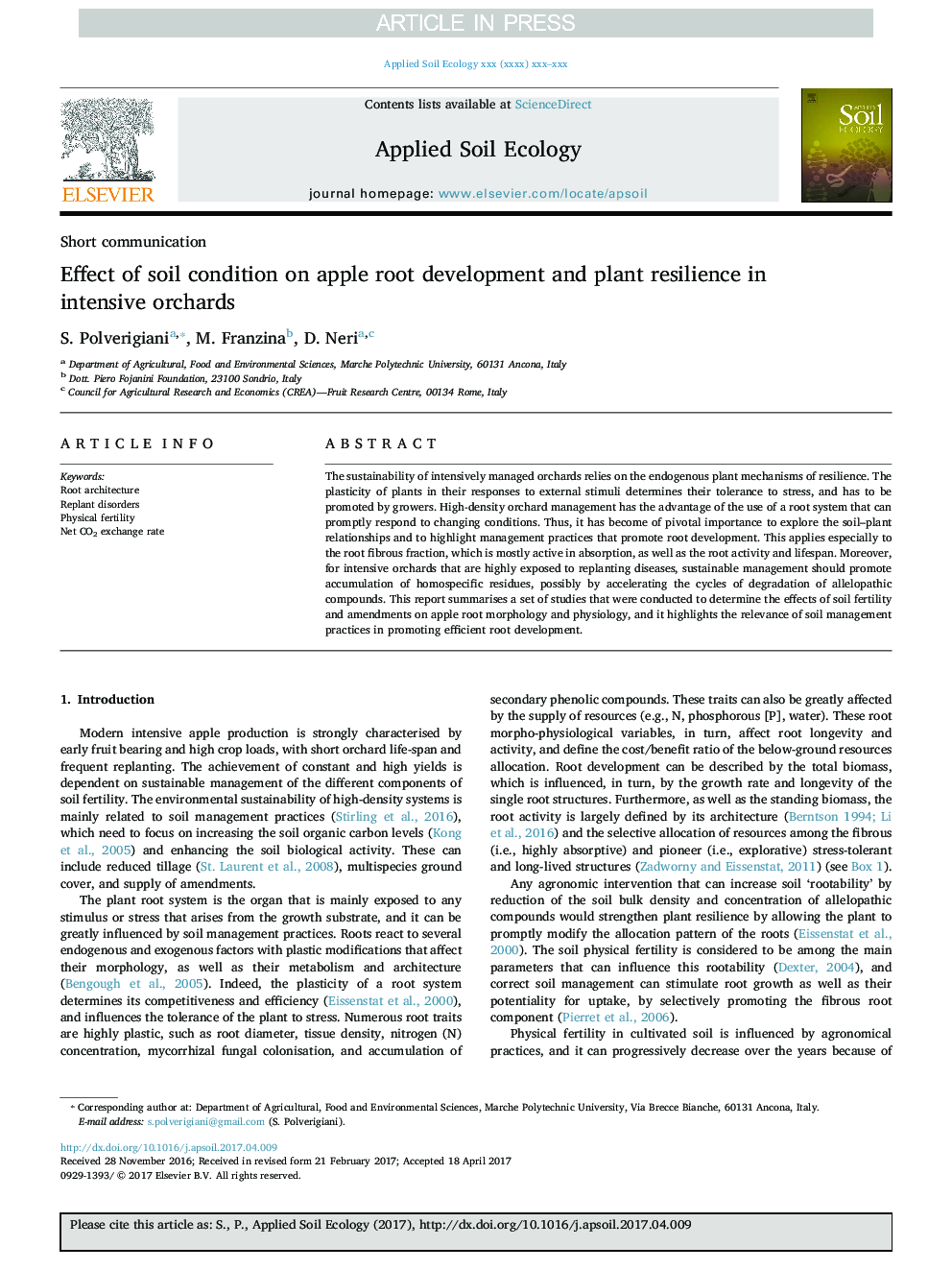| Article ID | Journal | Published Year | Pages | File Type |
|---|---|---|---|---|
| 8846921 | Applied Soil Ecology | 2018 | 6 Pages |
Abstract
The sustainability of intensively managed orchards relies on the endogenous plant mechanisms of resilience. The plasticity of plants in their responses to external stimuli determines their tolerance to stress, and has to be promoted by growers. High-density orchard management has the advantage of the use of a root system that can promptly respond to changing conditions. Thus, it has become of pivotal importance to explore the soil-plant relationships and to highlight management practices that promote root development. This applies especially to the root fibrous fraction, which is mostly active in absorption, as well as the root activity and lifespan. Moreover, for intensive orchards that are highly exposed to replanting diseases, sustainable management should promote accumulation of homospecific residues, possibly by accelerating the cycles of degradation of allelopathic compounds. This report summarises a set of studies that were conducted to determine the effects of soil fertility and amendments on apple root morphology and physiology, and it highlights the relevance of soil management practices in promoting efficient root development.
Keywords
Related Topics
Life Sciences
Agricultural and Biological Sciences
Ecology, Evolution, Behavior and Systematics
Authors
S. Polverigiani, M. Franzina, D. Neri,
